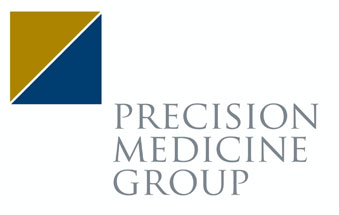Seed and Series A Rounds: Getting Bigger and Bigger
This week, BioCentury published an article quantifying trends in Series A rounds: newly founded companies are bringing in vastly more capital from their early investors. While approximately the same total number of companies have launched each year since 2017 (~300), the median Seed or Series A round has more than doubled in that time. And, against 2020’s numbers, 2021 medians YTD are up 75% and 40% for Seed and Series A rounds, respectively. More specifically:
- As of May 13th, the 110 biotechs that have disclosed the size of their early stage financings in 2021 have raised an aggregate $3.8B, almost half the $7.8B raised by 308 companies in 2020 and close to the $4.2B raised by 316 companies in 2017.
- This year’s crop raised a median of $35M and $7M in Series A and Seed rounds, respectively, vs. $25M and $4M in 2020, and $15M and $2M in 2017.
BioCentury hypothesizes that this move towards larger early venture rounds may be driven by a combination of funding requirements for complicated modalities, an influx of capital into new funds, the sense that newer technologies will demand more capital and constraints on the number of investments that a given VC can manage with those funds. They also highlight the role of more traditional “crossover investors” in these early stage fundraises. For example, according to BioCentury, familiar public names like RA, Janus, Logos, Boxer and BVF have all participated in at least 5 Series A rounds in 2021.
Millennials Vote!
IR Magazine announced the results of a recent survey by Broadridge Financial, which found that millennials are the group most likely to vote their proxy in the 2021 season. In fact, almost half (46%) of retail investors aged 25-40 replied that they plan to vote their proxy in 2021, a figure researchers say is the highest for any generation.
The data also shows that these newer and younger investors want their investments aligned with their values – especially when it comes to ESG-related issues. Social issues, such as diversity, and environmental issues around how companies are managing climate change are the two areas where retail investors most want to express their opinions. And where do these retail investors get their information? Not from press releases and earnings call transcripts! According to the data collected by Broadridge, 35% get their information from reading or watching the news; 34% from friends; 31% from family and 30% from social media. Helps explain the Reddit phenomenon!
Abingworth’s Most Recent Raise: Clinical Co-Development Fund 2
Earlier this month – and just three months after announcing a $465M biotech investment fund – Abingworth raised an additional $582M for the Abingworth Clinical Co-Development Fund 2, which will do deals directly, as well as with its co-development portfolio companies Avillion (in the UK) and SFJ Pharmaceuticals.
Market Update:
The overall markets were stable this week, with the NASDAQ, DJI and S&P 500 closing up 3%, up 1% and 1%, respectively. The VIX closed down 11%, sitting at 10.55 as of market close on 5/20. The biotech markets performed marginally better, with the NBI, BTK and XBI closing up 4%, 4% and 3%, respectively.
Over the past couple of weeks, we saw the following deals price:
- 1 SPAC merger: Ginkgo Bioworks (with Soaring Eagle Acquisition Corp).
- 1 IPO: Vera ($48M).
- 7 follow-ons: Dynavax ($200M); Eloxx ($52M); Evofem ($50M); Insmed ($863M); Praxis ($91M); Recro ($35M); Seelos ($60M).
- Many private financings, including: EureKare (Series A, $60M); Flare (Series A, $82M); HiberCell (Series B. $68M) Interius Bio (Series A, $76M); Numab (Series C, $110M); Nuvalent (Series B, $135M); PathAI (Series C, $165M); Soteria (Series A, $42M).

